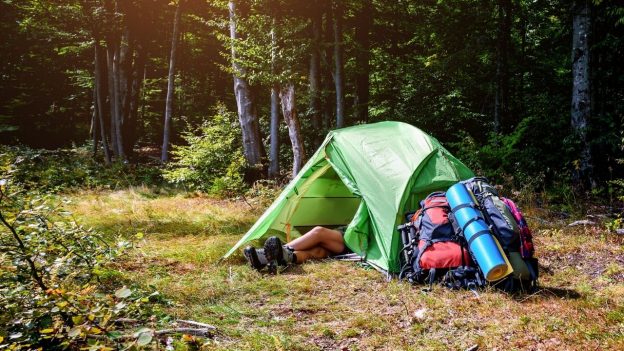A tent is the first thing one thinks of as soon as a backpacking or a camping plan is being made. You might think both are the same but will be a bit surprised to understand that it is not so.
One can say that sometimes it is difficult to separate the backpacking tent from a camping tent as some backpacking tents tend to resemble camping tents, especially when the people involved in the activity are similar like 3-4 people going for either backpacking or camping. Still there is a difference between a camping tent or a backpacking tent. Now, what is it?
Backpacking Tents
The tents meant for backpacking are smaller and weigh less than 4 pounds as hiking is involved in the activity. They need to be ultralight and best backpacking tents to make sure they can be hiked to longer distances easily. The sleeping capacity is mostly between 1 t0 4 persons per tent.
The materials used to make backpacking tents are ultralight materials like dyneema, and the cost of the product various from brand to brand. But generally a good ultralight backpacking tent is expensive and costs even over $500 in certain brands.
You should be taking a backpacking tent when you are planning on hiking several miles before you decide to camp. A backpacking tent can also be used when you are less people looking to travel light for your camping. A backpacking tent can be the all-around better option due to its lightweight.
Camping Tents
On the other hand camping tents can weigh more than 10 pounds as there is no hiking involved plus there is space to keep them while going for camping. The camping tent can be bigger and spacious than a backpacking tent depending on how many people are going to sleep in it.
Camping tents are usually heavier, with larger tent poles and more setting options to make the tent sturdier. You should use the camping tent when you have planned to drive to the campsite and there is no hiking involved. If there is hiking involved and there are multiple campers, then a big camping tent can also be taken so that not everyone will be carrying separate tents.

